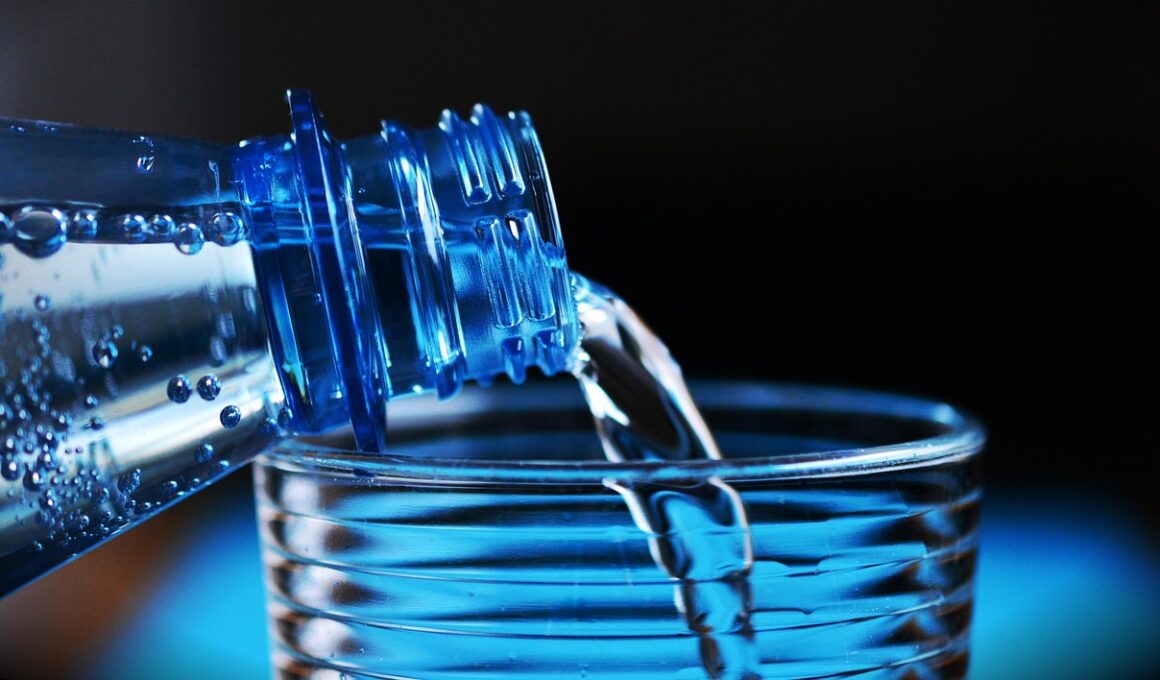Do You Need to Drink Water While Running? Myths Explained
When it comes to running, there is a plethora of myths surrounding hydration and its necessity. A particularly common misconception is that one must hydrate excessively during a run. This idea often stems from the belief that sweating requires constant water replenishment. However, for many people, especially those running shorter distances, this may not be entirely necessary. Before you lace up your running shoes, it’s crucial to examine how hydration needs vary from one individual to another. Factors such as weather, intensity of the run, and even individual sweat rates can influence how much water you realistically require. Furthermore, some runners tend to overhydrate, which can lead to a condition known as water intoxication. In essence, striking a balance is key to hydration while running. Paying attention to one’s thirst signals can guide you in maintaining appropriate fluid intake. It’s also important to plan ahead based on the distance of your run; more intense or longer runs might necessitate a pre-established hydration strategy.
The Science of Hydration During Exercise
The science behind hydration during exercise revolves around the body’s need to balance fluid loss with water intake. While many people emphasize gulping down fluids before and during runs, it’s vital to recognize the body’s requirements. During rigorous physical activities, like running, muscles generate heat, resulting in perspiration to prevent overheating. This perspiration can lead to fluid loss, which is critical to replace. Yet, your body can store some water and may not need constant hydration. Individuals might erroneously assume they are deprived of water based on the urgency to drink, but this might just be a response to the physical effort. To better comprehend what works for you, experiment with hydration strategies. Monitor how your body responds by adjusting fluid intake according to your perception of thirst and external conditions. Keeping track of your sweat rate after workouts can help tailor your hydration needs effectively. Ultimately, instilling a hydration regimen based on empirical experiences can make your runs more enjoyable and beneficial.
The temperature and humidity of your running environment play a significant role in your hydration needs. Colder weather may lead to less fluid loss, while humidity heightens sweat rates. As a result, runners often find themselves caught up in the myths of overdrinking during hotter months. Listening to your body can help you gauge your hydration status more accurately. Staying hydrated isn’t solely about drinking water; it’s also about maintaining a balanced electrolyte level. Sodium and potassium are vital, especially during prolonged or intense sessions. Some athletes prefer sports drinks to meet their hydration and energy needs during longer runs. However, for shorter workouts, plain water may suffice. Balancing water and electrolyte intake should be a personalized approach since overconsumption can also lead to unwanted issues. It’s essential to consider your unique characteristics while anticipating your hydration strategy. Being aware and knowledgeable about your physical responses while running will ultimately help you establish an effective practice for hydration.
How Much Water Do You Really Need?
Determining your hydration needs is neither simple nor universal since various factors affect how much water you should consume. A common guideline suggests drinking roughly 500 mL of water two hours before running, followed by smaller increments during the run. However, this amount can vary significantly depending on personal factors. An individual’s body weight, running intensity, and climate all play crucial roles in determining proper hydration levels. Runners frequently lose electrolytes and water through sweat, so it’s critical to replenish these losses adequately. Experimenting with fluid intake during training sessions can help you establish what works for you. For many, a generalized approach may be helpful, yet tuning into your body’s thirst cues remains essential. Remember, thirst isn’t always a reliable indicator of hydration levels, especially during intense exercises. Keeping a hydration log will also assist you in recognizing patterns over time. Remember to adjust your water intake as necessary, especially when the temperature rises or your running intensity increases.
Many believe that drinking water while running can lead to stomach cramps or discomfort, but this isn’t always the case. Activity levels and the timing of hydration significantly influence experiences. Consuming small sips of water periodically during a run may promote better hydration without causing adverse effects. In contrast, gulping down large volumes of water right before or during the workout can cause gastrointestinal distress for some individuals. Therefore, pace yourself and hydrate gradually. This approach allows your body to adjust and utilize fluids effectively. If you’re worried about the possibility of issues arising, training yourself to sip during shorter runs can alleviate concerns about larger runs without problems. Always pay attention to how your body responds after different drinking patterns. Ultimately, establish a personal hydration plan that suits your running habits. With careful consideration, hydration can enhance performance and recovery without causing discomfort.
Tips for Hydrating Effectively While Running
When running, integrating effective hydration practices into your routine is paramount. Start by ensuring you are not dehydrated before your workout begins; inadequate hydration can hinder performance. Always have a hydration strategy in place; instead of waiting until you feel thirsty, proactively sip water or an electrolyte drink at regular intervals. Carry a handheld water bottle or wear a hydration pack to make it easy to hydrate during your run. For longer distances, consider alternating between water and electrolyte drinks, especially in hot or humid conditions. Pay close attention to the signals your body gives you; if you’re exhausted or lightheaded, it may indicate that you need more fluids. After completing a run, rehydrate adequately by consuming fluids within the first half hour. Consuming recovery drinks, which contain carbohydrates and electrolytes, will help restore what was lost. Keep in mind that hydration needs differ among individuals; thus, adjusting your routine based on experience will allow you to find the best balance for your runs.
In conclusion, understanding the facts about hydration while running is pivotal to better performance and overall well-being. Instead of blindly adhering to myths, analyze your unique hydration needs, adjusting them based on environmental factors, physical exertion, and personal experiences. Effective hydration does not follow a one-size-fits-all model, and a personalized approach will ultimately yield the best results. Listen to your body, and through trial and error, identify the hydration strategy that suits you best. Hydration can significantly impact your running experience, enhancing both performance and recovery. Rely on scientific studies alongside personal experiences to navigate your hydration journey. With the right approach, running can be an enjoyable and healthy activity, free from discomfort caused by over- or underhydration. Enjoy your time on the trails and roads and remember that staying hydrated should support your run, not hinder it.


